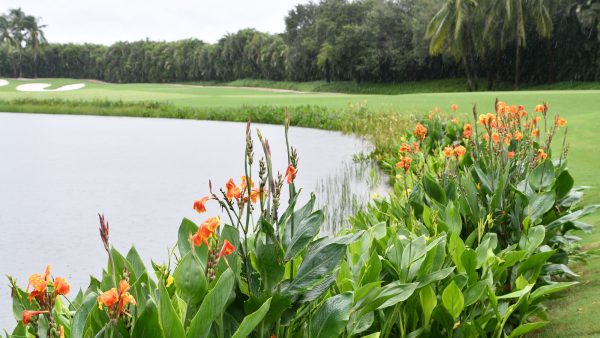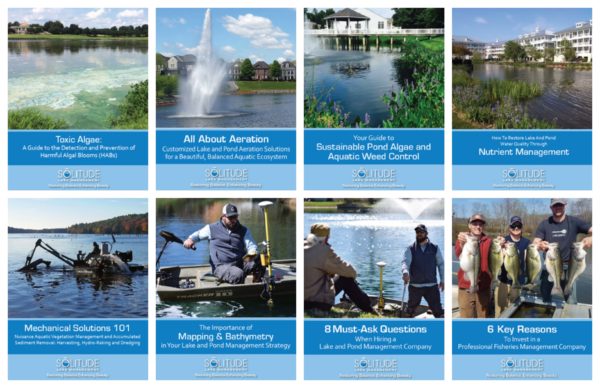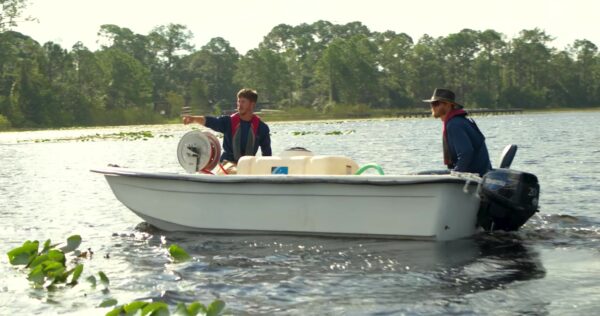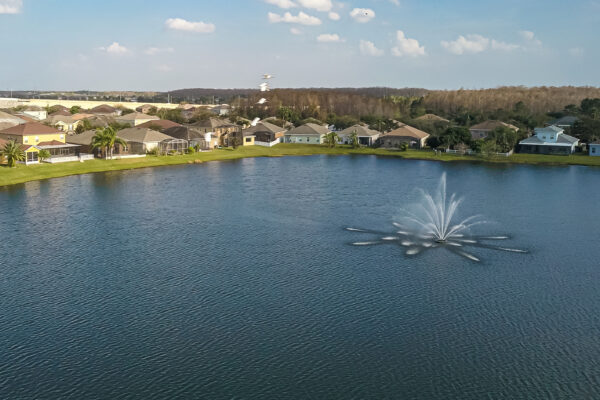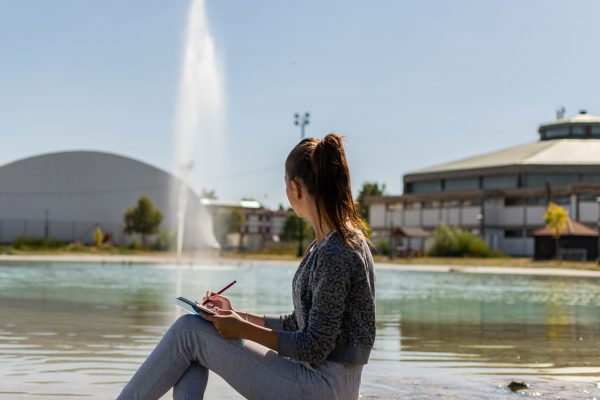
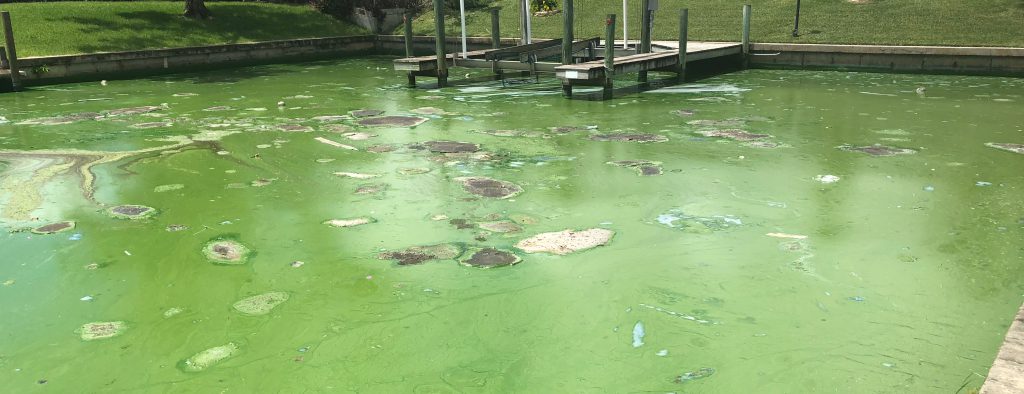
Pond Aeration and Avoiding Fish Kills
Lakes and ponds are a delicate balancing act made up of a variety of organisms fulfilling many different roles in the ecosystem. An issue will quickly arise in a waterbody when something is out of balance, inevitably throwing everything else off. When activity around the waterbody increases, especially during the warmer months, the potential for excess nutrients entering the system increases as well.
Increased amounts of nitrogen, entering a lake or pond from stormwater runoff and other sources like fertilization and grass clippings, can cause an imbalance in the entire lake system. Cyanobacteria, or blue-green algae, are nitrogen-fixing organisms and will definitely take advantage of the excess nitrogen. Nitrogen-fixing organisms are able to take the available nitrogen from the atmosphere and water and convert it into new compounds that can be used by other organisms. The bacteria on the bottom of the lake or pond can use the newly available nitrogen compounds for decomposition. As bacteria are decomposing the organic matter on the bottom of the lake, ammonia is released as a byproduct.
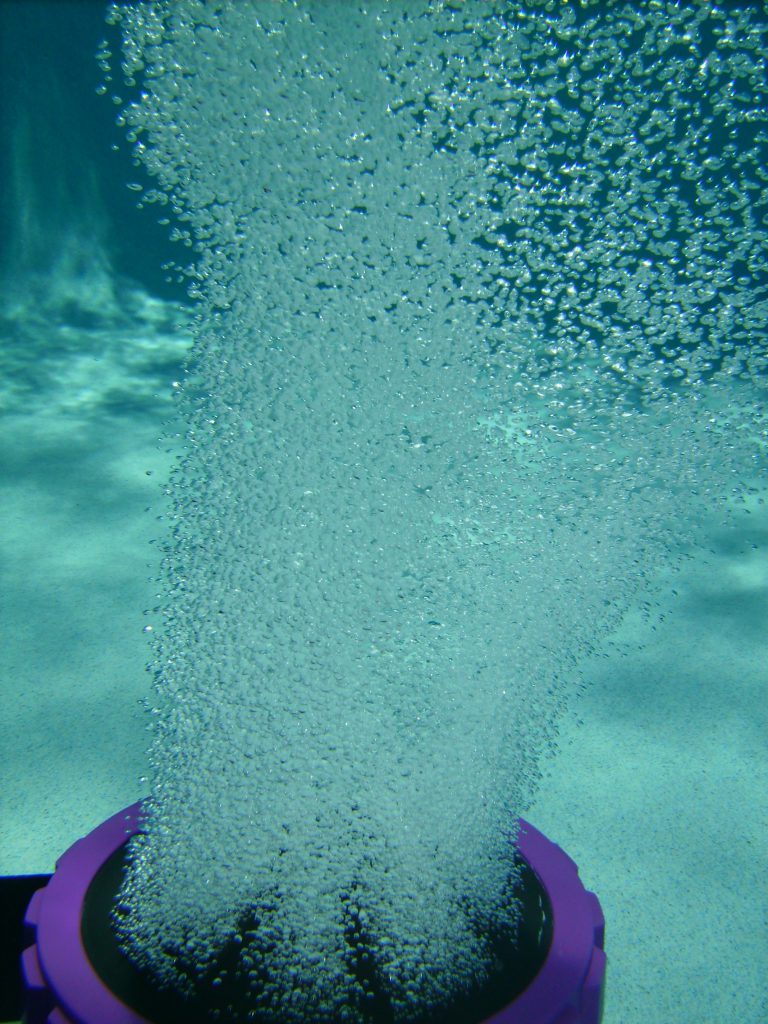
During the warmer months, a waterbody will begin to thermally stratify. Stratification occurs when changes in water temperatures create distinct layers based on differences in water densities. Due to the high density of the lower layers of water, the ammonia that is being produced by the bacteria will not mix into the water column and may become very concentrated. Many lake and pond managers and owners have become proactive about this issue and seek to prevent the ammonia buildup before it begins.
One approach to prevent a concentration of ammonia and encourage mixing of the water column is an underwater aeration system. These systems are made up of a compressor pumping air to diffusers within the waterbody. This creates artificial circulation and prevents thermal stratification. These systems are very effective when it comes to aeration; however, problems arise when the aeration system malfunctions, especially during the hottest months of the year. When the system turns off, re-stratification will start to occur immediately and may lead to the ammonia building up again. Caution should be taken when the system restarts because it will push the concentrated ammonia back into the water column. Ammonia can pose an ecological threat to fish and other aquatic organisms with sensitive organ tissues. It can also burn fish gills and potentially result in a large fish kill.
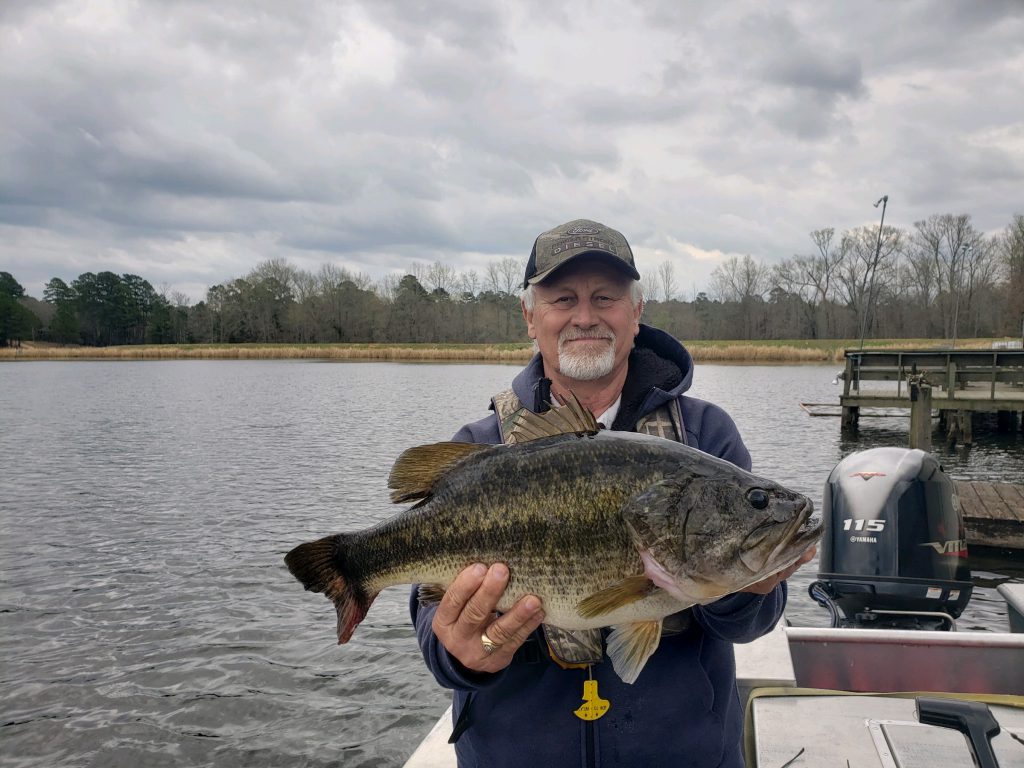
Lake and pond owners and managers should use extreme caution when initially starting and restarting a submersed aerator, especially during hot weather, and should be prepared to take the necessary precautions to prevent a fish kill. Monthly system maintenance makes sure all the components are working correctly and is a proactive approach to prevent any future issues. An underwater aeration system can be a great addition to any body of water, and with proper maintenance, it can help to build fish populations and sustain a healthy lake and pond ecosystem year-round.
Fishery Habitat Management
SOLitude Lake Management is a nationwide environmental firm committed to providing sustainable solutions that improve water quality, enhance beauty, preserve natural resources and reduce our environmental footprint. SOLitude’s team of aquatic resource management professionals specializes in the development and execution of customized lake, pond, wetland and fisheries management programs that include water quality testing and restoration, nutrient remediation, algae and aquatic weed control, installation and maintenance of fountains and aeration systems, bathymetry, mechanical harvesting and hydro-raking, lake vegetation studies, biological assessments, habitat evaluations, and invasive species management. Services and educational resources are available to clients nationwide, including homeowners associations, multi-family and apartment communities, golf courses, commercial developments, ranches, private landowners, reservoirs, recreational and public lakes, municipalities, drinking water authorities, parks, and state and federal agencies. SOLitude Lake Management is a proud member of the Rentokil Steritech family of companies in North America.

